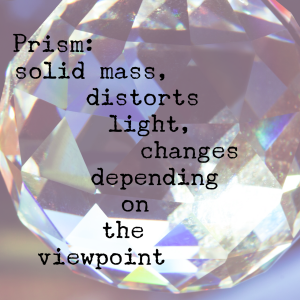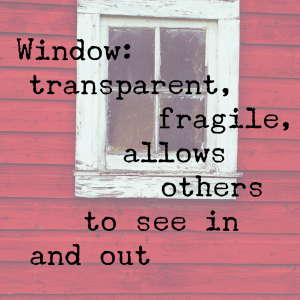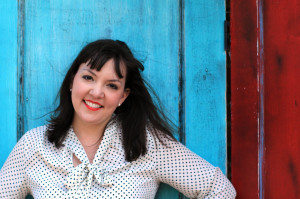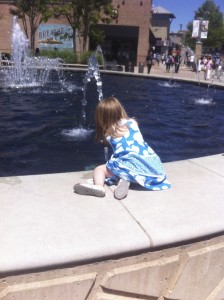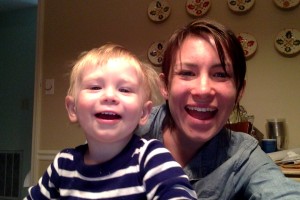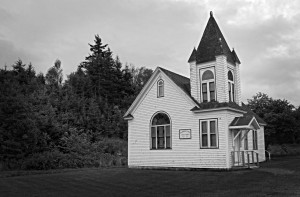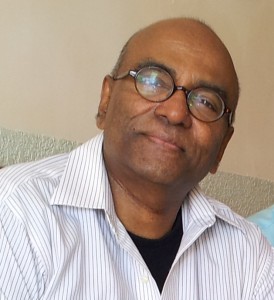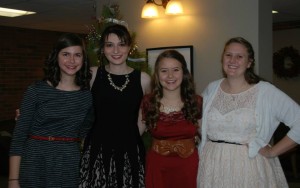Sometimes I wonder if I live as if I am a prism.
I distort the light within me through my many different facets. My many different faces. And it is my roles and my places that determine these faces.
At work, I am confident, focused, and confronting. I solve problems. I complete things. And, I am undistracted in my pursuit of success. My face is one of determination.
At home, I battle distraction. The typical things of a home filled with children – and internet connections – vie for my attention. I am less sure in this space. The tasks that I manage to complete just start over and over again – laundry, meals, school drop-offs, homework. At home, I try to make love my ambition, not productivity. But it is a struggle. My face is one of striving.
At my writing desk, I am neither here nor there. I am in Kairos, that other-than state that transports me into an openness that can only be explained by God. In Kairos, the immensity of Him and the tiny molecule of me intersect in a way that makes sense. My face is one of receiving.
At church, I am unmasked. I am at rest in the company of imperfection. I am enough. I filter, I question, I doubt. I accept that I am incomplete. I pursue connection. My face is one of seeking.
And so this is the orbit of life:
Rotating roles,
Rotating places,
Rotating faces.
But is this the revolution that God intended?
I wonder if the revolution He desired is one that transforms me from a prism into a window. Because, for His light to shine through me, don’t I need to be transparent and fragile, not rock solid and rotating?
I think I want to be a window.
But in transparency and fragility, I am vulnerable. It is easier and more comfortable to play my roles and change my faces. Rotation is protection. Vulnerability is risky; it is complicated and messy. Vulnerability is letting others see all of my faces, even the ones I don’t want to see.
Yet it is in this vulnerability that others see not only me, but themselves.
So I think I want to be a window, still enough to have one face, transparent enough to let His light shine through, fragile enough to let others see through me to themselves.
Determined, striving, receiving, seeking.
If I am a window, I am all of these faces, and more, at once, in every role and in every place.
If I am a window, I am one face. One face that stays rotated to God, letting His undistorted light shine through.
Yes. I want to be a window.
* * * * *
 “Rotating Places, Rotating Faces” was written by Holly Pennington. Holly has rotated faces through roles such as a physical therapist, health care executive, mother, writer, and entrepreneur. Her rotating places include Ohio, North Carolina, Florida and Colorado. She is pursuing a window kind of life in Washington state, despite the rain and fog. She blogs about faithfully merging “dreadlocks” and “goldilocks” selves at www.dreadlocksandgoldilocks.com. She can be found on Twitter (@dreadsandgoldi) and Facebook at dreadlocksandgoldilocks.
“Rotating Places, Rotating Faces” was written by Holly Pennington. Holly has rotated faces through roles such as a physical therapist, health care executive, mother, writer, and entrepreneur. Her rotating places include Ohio, North Carolina, Florida and Colorado. She is pursuing a window kind of life in Washington state, despite the rain and fog. She blogs about faithfully merging “dreadlocks” and “goldilocks” selves at www.dreadlocksandgoldilocks.com. She can be found on Twitter (@dreadsandgoldi) and Facebook at dreadlocksandgoldilocks.
